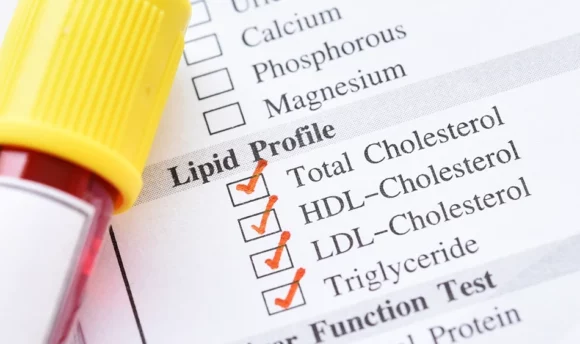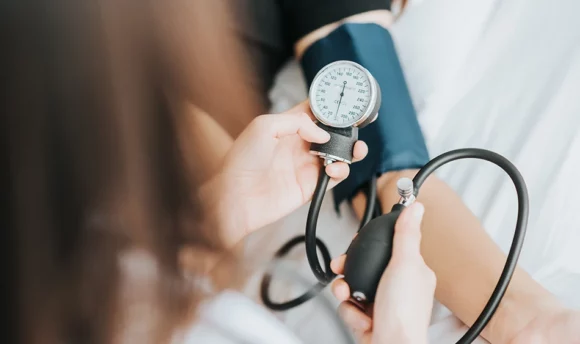How Long Does Caffeine Affect Your Heart Rate? The Connection Explained
Most of us enjoy morning tea or coffee, and many drink several cups throughout the day. But it’s important to recognize the negative effects of consuming too much caffeine. Here we cover the relationship between caffeine consumption and heart rate, from why it happens to how long it lasts.

There’s nothing better than freshly brewed coffee first thing in the morning. It gives you that extra kick to begin the day, making you feel more awake and alert. If you’re not a coffee drinker, you can also get caffeine from certain foods, supplements, and energy drinks.
Most people enjoy caffeinated beverages, maintaining a regular caffeine intake throughout the day. However, even hardcore caffeine drinkers will notice some negative effects from time to time. As a stimulant, caffeine affects activity in the brain and central nervous system.
When consumed in small doses, caffeine makes you feel refreshed and more focused. Unfortunately, too much can leave you feeling anxious, restless, nauseous, and unable to sleep. Another common reaction to caffeine is an increased heart rate.
This article covers the effects of caffeine on heart rate. Keep reading for the relationship between the two, including why it happens and how long it takes to wear off.
How Long Does Caffeine Affect Your Heart Rate?
An elevated heart rate can occur within 15–30 minutes of having caffeine, regardless of the source. It is first absorbed by the stomach before reaching its peak in the bloodstream about an hour later. Half of the caffeine consumed is still present in the human body 6 hours later, but effects tend to decrease as your body processes the drug.
For those who are particularly sensitive to coffee and other caffeinated drinks, increased heart rate may last several hours before returning to normal. In some cases, it may even last a few days.
If you become concerned about an irregular heart rate, you should seek professional medical advice.
Caffeine and Heart Rate: Is There a Link?
Elevated or irregular heart rate is considered a mild symptom of drinking caffeine. It’s not uncommon for people to experience heart palpitations and an irregular heartbeat after drinking coffee, tea, energy drinks, or caffeinated soft drinks. In fact, it may be one of the first signs you notice after drinking that extra cup.
That’s because caffeine impacts the central nervous system and the heart. Heart rate is controlled in part by two branches of the nervous system – the sympathetic nervous system and the parasympathetic nervous system.
It controls the release of hormones to speed up and slow down the heart rate. High caffeine doses also raise adrenaline levels, which can increase the heart rate.
Caffeine can also influence heart rate during moderate exercises, such as your daily run. Scientific reports have shown caffeine delays parasympathetic heart rate control and blood pressure recovery following aerobic exercise.
Does caffeine increase heart rate?
Yes, caffeine can increase your heart rate due to its stimulatory effects. However, the effects of caffeine can vary from person to person. Some people can tolerate high doses of caffeine without it affecting their heart rate or triggering other adverse symptoms. For others, caffeine intake may cause the heart to beat faster, and they may experience heart palpitations.
Generally, a temporary increased heart rate is unlikely to cause damaging effects. But it is best to limit or reduce your intake if you notice changes in your heart rate and rhythm. A rapid heartbeat may be particularly alarming for people with preexisting heart issues.
Why Does Caffeine Make My Heart Race?
Caffeine is a stimulant. Stimulants can cause the heart to beat faster and with elevated force, enhancing the release of the hormone and neurotransmitter norepinephrine, which can raise blood pressure and increase heart rate.
Caffeine also raises the circulation of cortisol – the body’s primary stress hormone and stimulates the adrenal glands, releasing adrenaline. These hormones increase heart rate and are responsible for your body’s natural fight or flight response.
FAQs
It may not impact everybody, as caffeine sensitivity varies between individuals. The amount of increase depends on things like how much caffeine you have consumed, how often, and characteristics such as age, body mass, and tolerance.
If you consume too much caffeine from an energy drink, you can slow your heart rate down by remaining calm, drinking plenty of water, and practicing deep breathing. If symptoms persist or become severe, you should visit the emergency room or contact a medical health professional for advice.
Caffeine levels in the blood peak approximately one hour after consuming caffeine and remain at this level for several hours. It can take 6 hours for caffeine levels to half and up to 10 hours to fully leave your system. For some, it may take even longer, depending on the amount of caffeine consumed.
Soda can elevate your heart rate due to its caffeine content. Often, these beverages contain a high amount of caffeine and sugar that can cause your heart to race if you drink too much. You should check if soda and other soft drinks have caffeine to avoid increased heart rate and other negative effects.
A Word From Our MD
Caffeine is present in the world’s most popular beverages, including coffee, black tea, and green tea. It’s also found in supplements, over-the-counter medications, chocolate, and soft drinks such as Coca-Cola. Additionally, caffeine is the primary ingredient in energy drinks.
Approximately 80% of American adults consume a caffeinated drink every day. People consume it to aid alertness, boost energy levels, and improve mood.
For most healthy people, a moderate amount can be beneficial as part of a balanced diet. Coffee, for instance, has many health benefits as it contains immune-boosting antioxidants. You can even enjoy tea and coffee while fasting.
Although some people raise concerns about high caffeine intake and heart disease, moderate doses do not appear harmful to heart health.
Too much caffeine can cause physiological effects such as increased blood pressure, raised body temperature, and elevated heart rate. Other negative effects include feeling jittery, sleep issues, headaches, and dehydration.
An elevated heart rate can take effect within 15 minutes of consuming caffeine and may last several hours. You can mitigate the risk of these effects by monitoring your caffeine consumption and decreasing it where necessary.
Before significantly reducing your caffeine intake, talk to your doctor. A sudden drop in caffeine consumption can cause withdrawal, with health effects including headache, fatigue, low energy levels, irritability, and mood disorders.
Conclusion
Caffeine, whether from tea, energy drinks, or instant coffee consumption, can increase your heart rate in as little as 15 minutes. The effects of caffeine can last long hours, depending on how much you consume and the frequency of consumption.
400mg is generally recommended as a safe amount of caffeine for healthy individuals to consume daily. This equates to about 4–5 cups of coffee. However, how your body reacts depends on your unique caffeine sensitivity.
If you are concerned about your heart health, blood pressure, or heart disease concerning caffeine, consult your doctor to discuss the effects of caffeine on your health. You can also discuss your concerns about caffeinated food and drinks with a registered dietitian.

















































 Select your language:
Select your language: 








